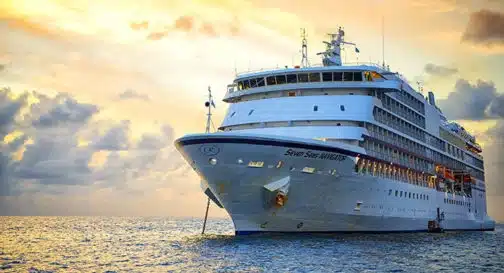Long Beach Jones Act Lawyers
Experienced Maritime Lawyer Helping Injured Seamen Seek Compensation in Southern California
 On the high seas, maritime workers face unique dangers that can cause catastrophic injuries, potentially forever altering their lives and the lives of everyone that depends upon them. The consequences can be disastrous when maritime employers and crew members take shortcuts, act recklessly, or fail to maintain heavy equipment properly. The Jones Act, perhaps the most powerful of all maritime laws, offers injured seamen the opportunity to seek compensation from negligent parties by filing a personal injury claim against them. Additionally, surviving family members of a maritime worker tragically killed in an accident while at sea may be able to pursue compensation by filing wrongful death claims with the help of an experienced attorney.
On the high seas, maritime workers face unique dangers that can cause catastrophic injuries, potentially forever altering their lives and the lives of everyone that depends upon them. The consequences can be disastrous when maritime employers and crew members take shortcuts, act recklessly, or fail to maintain heavy equipment properly. The Jones Act, perhaps the most powerful of all maritime laws, offers injured seamen the opportunity to seek compensation from negligent parties by filing a personal injury claim against them. Additionally, surviving family members of a maritime worker tragically killed in an accident while at sea may be able to pursue compensation by filing wrongful death claims with the help of an experienced attorney.
At our law office, Long Beach maritime law attorney Preston Easley and his highly skilled legal team have extensive experience and a proven track record of helping injured parties recover compensation for medical bills, lost wages, and other losses. As your legal representation, we will consider every state and federal law that could apply to your maritime accident case, including the Jones Act, the Death on the High Seas Act, Maritime and Admiralty Claims, And more. We will do everything in our power to ensure that the at-fault parties are held responsible for their actions so that you can recover the financial compensation you deserve and require.
Our law firm offers free consultations to prospective new clients interested in retaining our legal services. To discuss your maritime injuries and the accidents that caused them, please contact our law office in Long Beach, CA, to schedule your free consultation with our legal staff today.
What is the Jones Act?
The Jones Act, previously known as the Merchant Marine Act of 1920, is a federal law created to protect American maritime workers. The law grants an injured seaman who was harmed while working aboard vessels on navigable waters the opportunity to sue their employers or other parties for negligence. The Jones Act allows surviving spouses and other family members to seek wrongful death damages if they tragically lost a loved one while they were working aboard a vessel. The Jones Act can also apply in maritime cases where a watercraft is deemed unseaworthy or not correctly built and maintained for a safe working environment.
Maritime laws are complicated. A maritime worker must qualify as a seaman to seek compensation under the Jones Act. Other workers who work along the sea, such as longshore workers and shipyard workers, may not necessarily qualify for Jones Act protections.
To ensure the Jones Act applies to your maritime case, please contact our law firm to schedule your free, no-obligation case evaluation with our legal team today.
What is the Importance of Proving Your Employer’s Negligence?
Establishing negligence or fault is the foundation of every successful Jones Act claim. For an injured maritime worker, this may include proving that your employer did not provide adequate safety gear, failed to train crew members adequately, improperly maintained equipment and machinery, and failed to provide a safe working environment.
The Jones Act uses four criteria for establishing eligibility: duty, breach, causation, and damages. An experienced maritime injury attorney is well-versed in these requirements for Jones Act cases and can help determine whether you have a valid claim.
Examples of negligence in Jones Act cases include, but are not exclusive to, the following:
- Failing to provide safe work environments, if the unsafe environment is the vessel or another place under the employer’s control
- Failure to provide adequate medical treatment
- Failure to warn crew members of dangerous conditions and failing to address those conditions
- Improper training or negligent hiring practices
- Negligence of crew members and co-workers for whom the employer is responsible
- The failure to perform an adequate search and rescue attempt for a seaman who falls overboard
- The vessel is not reasonably fit for its intended use
- The vessels were not equipped with appropriate safety gear and equipment
- Unsafe or unsanitary recreation facilities on the vessel
- Unseaworthiness, which can lead to claims being made against boat owners
- Violations of safety statutes
- And more
Which Maritime Workers Are Considered ‘Seamen’ Under the Jones Act?
To qualify as a Jones Act seaman, you must be a crew member contributing to the operation or navigation of a water-faring vessel.
You may be considered a seaman if you spend at least 30% of your time on a vessel. Those who did not spend 30% of their time aboard a vessel at sea when the injury occurred are unlikely to qualify for Jones Act claims.
The maritime worker must be assigned to either a single vessel or a fleet of vessels. Qualifying vessels may include fishing boats, cruise ships, cargo boats, crew boats, drilling ships, tugboats, transportation vessels, supply boats, and more. Other vessels may also qualify depending on their use. The ship must still be in navigation, which means it can still move on navigable waters with few modifications.
Shore-based workers, such as dock workers, longshoremen, office staff, and others, may not qualify as Jones Act seamen.
What Types of Maritime Accidents Are Common in Jones Act Cases?
The Law Offices of Preston Easley have years of experience representing injured seamen and other maritime workers in various offshore accidents.
Examples include the following:
- A cruise ship accident
- Assault and battery
- Commercial boating accident
- Crane accidents
- Deck accidents caused by dangerous or defective conditions
- Factory processing accidents
- Falling objects, including overhead gear collapsing
- Fingers or limbs getting caught in nets, cables, or ropes
- Improper safety procedures causing accidents
- Man overboard incidents
- Machinery malfunctions and defective equipment accidents
- Medical negligence
- Repeated muscle strain and heavy-lifting accidents
- Slip and fall accidents on decks, stairways, and other platforms
- Toxic chemical exposure
- And more
If you were in an accident and suffered serious injuries, our law firm will work tirelessly to ensure that at-fault parties are held liable for more medical expenses, lost income, and other losses. The sooner our attorney has a chance to review the particulars of your case, the better your chances of recovering financial compensation. Contact us today.
What Are Common Injuries Suffered in Maritime Incidents and Boating Accidents?
The Jones Act covers a wide variety of accidents and injuries, including injuries that cause physical harm and those that cause emotional distress or illness.
There are many ways in which a maritime worker could get injured, sometimes catastrophically, while aboard a vessel at sea. If you have been injured, immediately notify your employer or supervisor and seek medical care. You must then give the maritime employer written notice of injury or death within 30 days of the accident.
Common injuries suffered by seamen include the following:
- Broken bones and fractures
- Crushing injuries
- Deep cuts and lacerations
- Drowning or near drowning
- Forced amputations or loss of limbs
- Head injuries, including concussions, traumatic brain damage, and open-head wound injuries
- Organ damage and internal bleeding
- Spinal cord injuries, which can sometimes result in complete or partial paralysis
- And more
Can Our Maritime Law Firm Help Injured Workers Recover Compensation?
Whatever the nature of the injuries sustained, if a negligent party was responsible for the accident, you deserve a chance to seek financial recovery. The injured victim should not be the party responsible for paying off their medical bills and other expenses.
With the help of an experienced attorney, injured plaintiffs can maximize the compensation recoverable in a lawsuit. This compensation may take the form of both economic and non-economic damages.
Compensation that can be recovered under the Jones Act includes the following:
- Past medical bills and future medical expenses
- Lost wages and lost income earning capacity
- Physical pain and suffering damages
- Mental anguish or emotional distress compensation
- Loss of life enjoyment
- Disability, disfigurement, or dismemberment
- Wrongful death damages, which can include funeral expenses, loss of financial support, loss of companionship, and more
Schedule Your Free Initial Consultation with an Experienced Long Beach Jones Act Lawyer Today
If you are a maritime worker who has been injured at sea, you need to work with an attorney dedicated to the practice of maritime law. Our Long Beach lawyer and his legal team have extensive experience representing injured seamen with negligence claims against irresponsible or reckless employers. As your legal representative, we will attempt to recover the maximum compensation for your case so that you are made financially ‘whole’ again.
To learn whether your case qualifies for a Jones Act claim, please contact our Long Beach, CA, law firm to discuss your legal matters today. Call 310-773-5207 to schedule your free consultation with the attorney and his legal staff.








